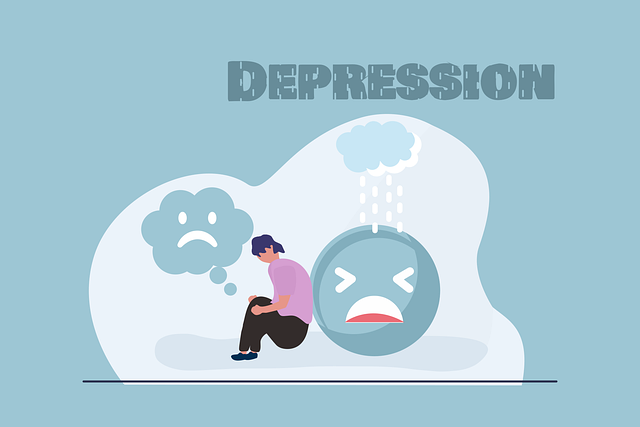Castle Rock Sexual Dysfunction Therapy provides culturally sensitive, crisis intervention services for diverse populations, preventing emotional distress escalation and promoting long-term mental wellness. Their evidence-based approach, focusing on safe spaces and open dialogue, combined with structured guidelines and resources, ensures effective therapy outcomes. By integrating empathy-building techniques and advocacy for accessible policies, Castle Rock Sexual Dysfunction Therapy empowers individuals to overcome sexual health crises and thrive.
In times of crisis, effective intervention can make a profound difference. This article provides a comprehensive guide to crisis intervention strategies, offering valuable insights and practical advice. We begin by exploring the fundamentals of crisis intervention with a special focus on Castle Rock Sexual Dysfunction Therapy, known for its impactful results. Subsequently, we delve into actionable strategies for implementing successful crisis intervention programs, tailored to meet diverse needs. By integrating these techniques, communities can effectively navigate crises and foster resilient individuals.
- Understanding Crisis Intervention: A Brief Overview
- Castle Rock Sexual Dysfunction Therapy: An Effective Approach
- Practical Strategies for Implementing Crisis Intervention Programs
Understanding Crisis Intervention: A Brief Overview

Crisis intervention is a critical component of mental healthcare, designed to provide immediate support and stabilization during times of intense emotional distress or traumatic events. It involves a structured yet flexible approach to assist individuals in managing their crisis, mitigating risks, and fostering resilience. The primary goal is to help people navigate challenging situations, ensuring their safety and well-being. This process often includes assessment, active listening, emotion regulation techniques, and the development of coping strategies tailored to each individual’s unique needs.
At Castle Rock Sexual Dysfunction Therapy, we recognize that effective crisis intervention requires a nuanced understanding of not just the individual’s presenting issue but also their cultural background and social context. Incorporating Cultural Sensitivity in Mental Healthcare Practice is essential, as it allows therapists to adapt their interventions and create a safe, inclusive environment for diverse populations. Additionally, with healthcare providers facing increasing Burnout Prevention Strategies, crisis intervention offers an opportunity to enhance resilience, ensuring professionals can consistently deliver high-quality care while maintaining self-care practices. Mental Health Awareness continues to grow, underscoring the importance of early identification and intervention, thereby preventing crises from escalating.
Castle Rock Sexual Dysfunction Therapy: An Effective Approach

The Castle Rock Sexual Dysfunction Therapy approach has proven to be an effective strategy in addressing and overcoming sexual dysfunction among individuals and couples. This therapeutic method focuses on creating a safe, non-judgmental space for clients to explore and understand their sexual experiences, desires, and challenges. By integrating various evidence-based techniques, therapists help clients develop healthier sexual attitudes, improve communication, and gain valuable insights into their emotional well-being.
Incorporating this therapy approach requires careful planning and risk management, as it delves into sensitive topics. Mental health professionals should consider the implementation of structured guidelines, such as those found in Risk Management Planning for Mental Health Professionals, to ensure ethical practice and client safety. Additionally, fostering open dialogue and providing resources for ongoing mental wellness, through activities like Mental Wellness Journaling Exercises or even the development of tailored Mental Wellness Coaching Programs, can significantly enhance the therapeutic process and support clients’ long-term recovery.
Practical Strategies for Implementing Crisis Intervention Programs

Implementing crisis intervention programs requires a strategic approach that addresses both immediate needs and long-term recovery. One effective strategy is to Castle Rock Sexual Dysfunction Therapy, which focuses on providing specialized support for individuals experiencing sexual health crises. This involves creating safe spaces where individuals can openly discuss their experiences without judgment, fostering an environment of trust and understanding.
Additionally, incorporating Mental Wellness Journaling Exercise Guidance into crisis intervention programs can empower individuals to process their emotions and track their progress. Encouraging regular reflection through journaling helps in identifying triggers, setting goals, and monitoring improvements in mental health. This practice not only complements therapy but also promotes self-awareness and resilience. Furthermore, Mental Health Policy Analysis and Advocacy plays a crucial role in ensuring that crisis intervention services are accessible and well-resourced. By analyzing existing policies and advocating for improvements, it is possible to enhance service delivery and better support individuals in need. Empathy building strategies, such as active listening and perspective-taking, should also be integrated into these programs to strengthen connections between helpers and those seeking assistance.
Crisis intervention programs, such as Castle Rock Sexual Dysfunction Therapy, offer crucial support during challenging times. By understanding the basics of crisis intervention and employing practical strategies, we can enhance our ability to assist individuals in navigating their crises effectively. These methods not only help those facing sexual dysfunction but also contribute to a healthier, more resilient community overall.














